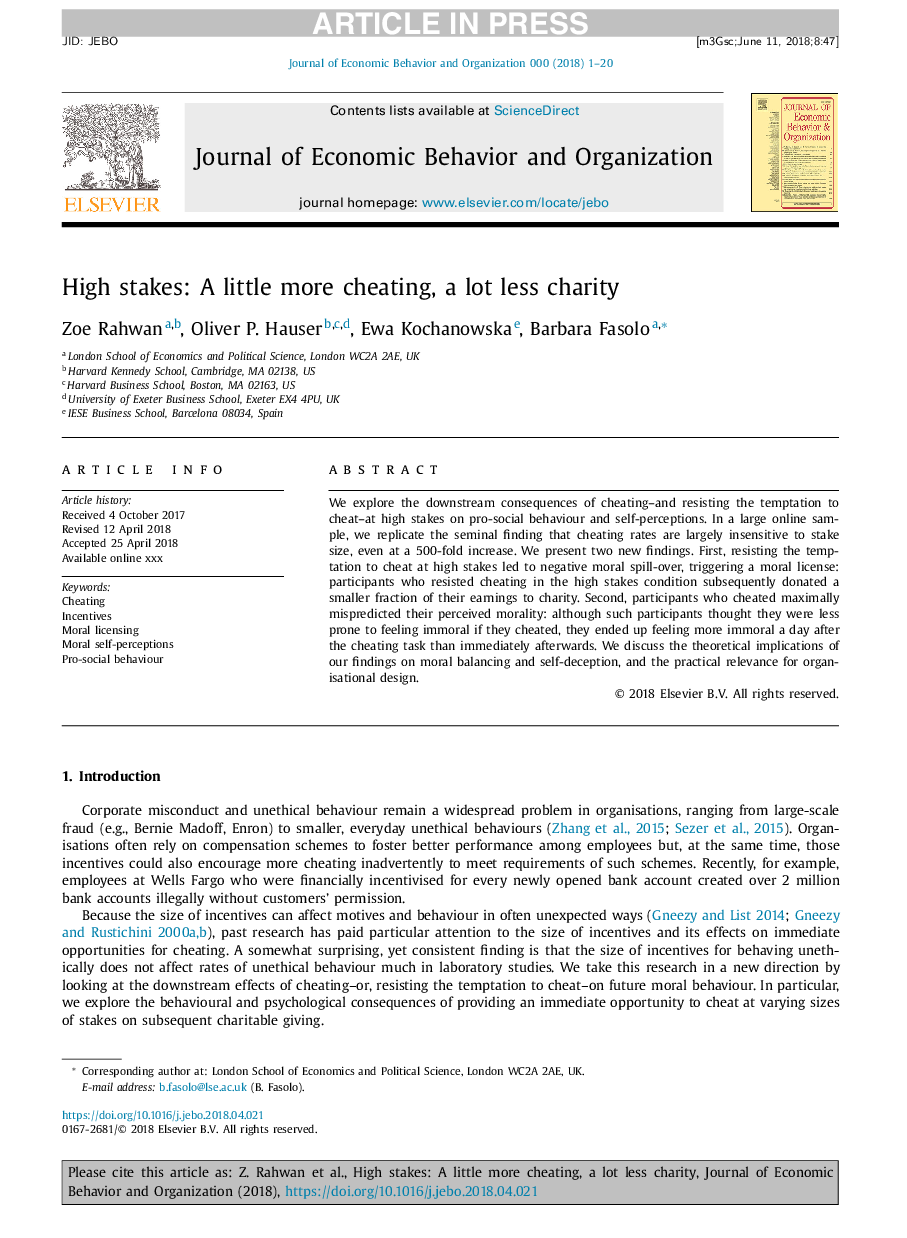| Article ID | Journal | Published Year | Pages | File Type |
|---|---|---|---|---|
| 11004376 | Journal of Economic Behavior & Organization | 2018 | 20 Pages |
Abstract
We explore the downstream consequences of cheating-and resisting the temptation to cheat-at high stakes on pro-social behaviour and self-perceptions. In a large online sample, we replicate the seminal finding that cheating rates are largely insensitive to stake size, even at a 500-fold increase. We present two new findings. First, resisting the temptation to cheat at high stakes led to negative moral spill-over, triggering a moral license: participants who resisted cheating in the high stakes condition subsequently donated a smaller fraction of their earnings to charity. Second, participants who cheated maximally mispredicted their perceived morality: although such participants thought they were less prone to feeling immoral if they cheated, they ended up feeling more immoral a day after the cheating task than immediately afterwards. We discuss the theoretical implications of our findings on moral balancing and self-deception, and the practical relevance for organisational design.
Related Topics
Social Sciences and Humanities
Economics, Econometrics and Finance
Economics and Econometrics
Authors
Zoe Rahwan, Oliver P. Hauser, Ewa Kochanowska, Barbara Fasolo,
